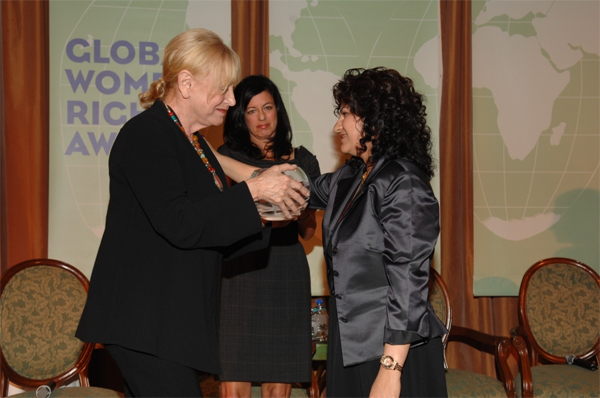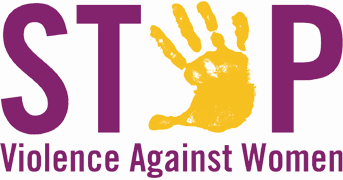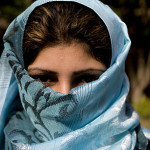The first step on the long road to building a new Iraq is for the occupying forces to leave. In the modern history of Iraq, September 24 is a dark day. It was on September 24 2002 that the US administration decided it would launch its barbaric war against the Iraqi people.
The period of 2002-2006 is only the most recent phase in this. Since the first Gulf war in 1991, thousands of people have been killed: 13 years of destructive sanctions and the 2003 invasion and ongoing occupation have been claiming lives of Iraqi civilians at a sickening rate.
Since the invasion, more than 100,000 people have lost their lives and more than 1 million Iraqis have fled the country in order to seek safety. The UN has recently announced that 6,600 people have been killed in Iraq in the past two months alone. These are just some figures of what seems like genocide against the Iraqi people – one that continues and gathers paces under the US/UK occupation.
Internal refugees are increasing, with both Sunni and Shia Muslims migrating between cities to escape sectarian violence and religious persecution. Most of these people are living in camps, tents or in abandoned buildings without the most basic living standards.
Security is still the paramount issue but, three years after the “liberation” of Iraq, basic water and electricity supplies are still a dream for many people there. Schools, hospitals and other civil institutions have no proper functioning and armed militias rule over numerous neighbourhoods, enforcing religious law and terrorising people at will.
The US, in its pursuit of both regional and global hegemony, has manufactured its reason for being in Iraq. Attacking Iraq under the pretext of averting the threat posed by Saddam Hussein’s phantom weapons of mass destruction and severing his supposed links to al-Qaida has led not to the replacement of dictatorship with “democracy”, but to the replacement of one tyranny by another. It has turned Iraq into a country where sectarian Islamist organisations, many with their own well-funded militias, are both in government and posing as the “resistance” to the occupation.
The occupying army has resorted to all kinds of atrocities to deal with its crises: killings, torturing prisoners, raping women and raiding people’s houses. It has also meted out savage repression to the renascent progressive and labour movements in Iraq – firing on workers’ demonstrations, attacking trade unions offices and raiding the headquarters of anti-occupation organisations such as the Iraq Freedom Congress. Following the raid, almost everything in the IFC’s offices has been destroyed.
The government – still essentially a US puppet regime – is made up of fierce reactionaries; misogynistic Shia Muslim groups have made the overall situation even worse. The Badr corps (the militias of the supreme council for the Islamic revolution in Iraq, one of the most powerful parties in the government) is committed to a campaign of terror against civilians. Recently, it has especially targeted gay, lesbian and transsexual people.
Religious and sectarian divisions are widening daily, with LGBT people and women the main victims. Recently, a sectarian gang abducted a Shia woman from the Alhussianya district of northern Baghdad, raped her and dumped her in a deserted area on the outskirts of the city. In retaliation, a Shia gang kidnapped eight Sunni women from Rashidya district (adjacent to Alhussienya) and subjected these women to rape and torture. Sectarian violence is unbelievably extreme: eyes have been plucked out, bodies have been drilled, genitals and heads chopped off.
Many Iraqi women now face violence and even death at the hands of their relatives who are increasingly resorting to “honour” killings in the name of tradition. It is the security vacuum that the occupation has brought that allows this to happen at such extreme levels, as well as the increased power it has delivered to the most reactionary forces in Iraq society.
Since 24 September 2002 Iraq has slipped further and further into an abyss of violence, chaos, poverty and massive repression. We need to start hauling ourselves out.
As the US and its alliance invaded Iraq under the pretext of “liberating” Iraqis from dictatorship, they try now to justify their occupation by claiming they are “protecting” Iraqi people from the chaos and sectarian civil war that would ensue if they were to leave. But the reality is that Iraq is already in a state of civil war, which will escalate and worsen as long as the occupation continues.
Ending the occupation will not be an immediate panacea. It will not end the catastrophic situation straight away. There is a long way to go to building a new Iraq, but there can be no doubt that ending the occupation is a vital first step on this long road.
It is only the genuinely progressive forces in Iraq – the workers, and women’s movements – that can end the occupation for a better alternative. The US and its allies – our so-called “liberators” – cannot be relied upon to remedy the situation they themselves have created. They must leave.




